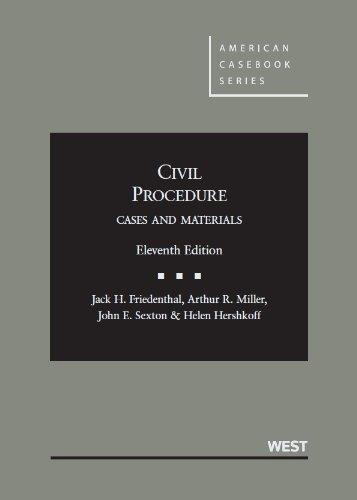2. Trials ordinarily were held at common law before a single judge and a jury. After verdict,...
Question:
2. Trials ordinarily were held at common law before a single judge and a jury. After verdict, if the losing party wanted the judgment of the entire court on a question of law that was involved in the case, that party asked for a rule nisi. A hearing before the court en bancwas then held, and if that court sustained the rulings of the trial judge it denied the rule; otherwise, it made the rule absolute. When a verdict was taken subject to the opinion of the court en banc, as in Scott v. Shepherd, the ordinary procedure of applying for a rule nisi was unnecessary. Therefore, instead of denying a rule or making it absolute, the order of the court en banc was in the form of a postea to the prevailing party, which authorized the entry of judgment.
Step by Step Answer:

Civil Procedure Cases And Materials
ISBN: 9780314280169
11th Edition
Authors: Jack Friedenthal, Arthur Miller, John Sexton, Helen Hershkoff






